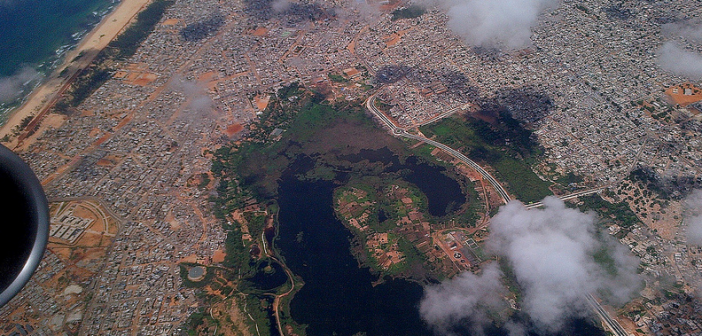The Next Einstein Forum (NEF) celebrated the leading lights of African technological innovation earlier this month. From 8 – 10 March, 1000 participants and 500 guests from the world of mathematics, technology, and engineering converged on Dakar, the capital of Senegal. Joined by the presidents of Senegal and Rwanda and the science ministers of both countries, the awards were a salute to African ingenuity.
Organised by the African Institute of Mathematical Sciences (AIMS), in conjunction with German engineering giants Bosch, the NEF was launched in 2013. Its corporate patrons are drawn from all areas, with DFG, Carnegie, and the Mastercard Foundation all championing the cause. Curiously, for a Francophone country, French companies were not among the business delegation.
The Robert Bosch Foundation is the philanthropic arm of the German tech company, and is the largest corporate charitable organisations in Germany. The foundation used its influence to bring African inventors and scientists in contact with key decision-makers in media and policy. By helping to expand networks for African scientific minds, the NEF will take ideas global by raising the profile of African scientists internationally.
“We hope to integrate Africa into the global research and development community and to help it become a new center for research and technology,” said Ingrid Wünning Tschol from the Robert Bosch Foundation, one of the key members of the forum.
A major issue concerning Africa is the ‘brain drain’, the loss of key scientific talent as they move abroad to hone their skills in Europe and the West. It is estimated that 40% of African researchers are not local to the continent. Initiatives like the NEF are essential to strengthen and embolden the scientific community.
The NEF selected 15 fellows, representing the top scientists and technologists from across Africa, 5 of whom are women. These fellows will be granted unprecedented access to well-known scientists, and media mentoring to further their aims.
The breakout star of the forum was Moses Bangura, winner of the Global Challenge of Invention to Innovation competition. The Sierra Leonian scientist developed a drone that delivers medical supplies, providing access to healthcare to those in remote regions. It was piloted in his native country, and Bangura hopes to roll it out across the African continent.
“It’s very reliable and robust, an open source system which anyone can develop,” he said, “this we believe will be the first of its kind in the world. In the end, RDS will ensure that health care products are able to reach people in emergencies and those who are in the furthest regions from connected roads.”
The forum ended on 10 March, with the promise of new initiatives to strengthen scientific exchange, between the AIMS and the German Ministry of Education, as well as the visiting fellow programme to embolden the stars of the forum.
“The next Einstein will come from Africa!” said Neil Turok, a South African physicist and founder of the African Institute of Mathematical Sciences (AIMS). With the new initiatives launched, this may well come to fruition.
The Next Einstein Forum will be held in Botswana in 2018.





